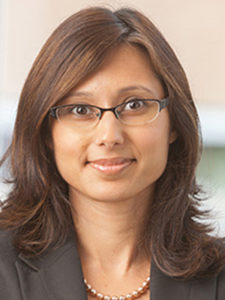
Within this year’s primary program tracks, attendees will find subspecialty educational sessions targeted to specific areas of interest, including programming for rheumatology educators.
The educator sessions at the ACR/ARHP Annual Meeting help educators stay at the forefront of developments in medical education, both within rheumatology and the broader field, to introduce educators to novel and emerging educational techniques, and to continue to build a community of educators within the field.
“The ACR/ARHP Annual Meeting is of value to both academic and private practice rheumatologists in so many ways. It not only is an educational forum to learn about updates in a variety of topic areas in rheumatology but is also a platform for networking with other rheumatologists,” said Annual Meeting Planning Committee member Tina D. Mahajan, MD, Assistant Professor of Internal Medicine in the Division of Rheumatology at the University of Nebraska Medical Center in Omaha.
“For educators in particular, the Annual Meeting is a tremendous opportunity to network and share ideas about curriculum styles and teaching methods,” she said. “I think it can be particularly helpful for program directors, who are a smaller, more cohesive group, and who may have fewer opportunities to come together to learn and talk about what is working, and often more important, what’s not working, within their particular institutions or programs.”
Among the many highlights of this year’s subspecialty programming for rheumatology educators, Dr. Mahajan recommends that all of her educator colleagues should plan to attend the Medical Education Year in Review session (1:00 pm Monday, October 22). The session will feature a review of the most up-to-date and important literature in educational scholarship in rheumatology over the past year and an examination of the major emerging topics in rheumatology education.
“The Year in Review session will include a presentation by Simon Helfgott, MD, of Brigham and Women’s Hospital and Harvard Medical School, who is sure to offer a thorough review and an insightful take on rheumatology education now and going forward,” Dr. Mahajan said.
Another session she recommends is Innovative Educators, Novel Techniques: Foundation CSE Award (7:30 am Tuesday, October 23), which will update rheumatology educators—most importantly rheumatology training program directors—about new educational methods and curricula, including those developed via the Rheumatology Research Foundation’s Clinician Scholar Educator (CSE) Award.
Dr. Mahajan recommends another Tuesday session, Teaching Rheumatology in the Clinic & at the Bedside: Tips, Tricks & Pearls (4:30 pm), an interactive session guided by experienced clinical educators, who will share their winning techniques for incorporating teaching into the daily practice of clinical rheumatology. The session will focus on the practicalities of clinical teaching, including how to address learners at various stages and how to utilize techniques, such as the one-minute preceptor model, in order to teach effectively in very short amounts of time.
Amid all of the great educational programming, Dr. Mahajan encourages attendees to make time in their schedules to take advantage of the many networking opportunities the Annual Meeting affords, including the Joint Division and Program Directors’ Forum (1:30 pm Friday, October 19). The forum will address key issues in running both rheumatology training programs and successful academic divisions of rheumatology and offer attendees the chance to network and brainstorm solutions to common problems faced by academic institutions.


